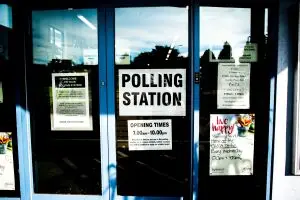Brevia Consulting is providing a weekly round-up and analysis of the UK headlines. This week, read about Prime Minister Rishi Sunak’s recent comments regarding the asylum backlog, the first day of nursing strikes, and the Bank of England raising the Bank Rate by 0.5 per cent.
SUNAK ANNOUNCES MEASURES TO CLEAR ASYLUM BACKLOG
On Wednesday, the Prime Minister announced plans to clear the backlog of asylum applications and deter illegal crossings of the Channel. Sunak’s announcements include further funding and staff for agencies tasked with stopping small boat crossings and processing asylum claims, an end to using hotels to house asylum seekers, and reforms to the asylum system to triple the productivity of caseworkers.[1] Sunak also announced new measures focused on Albania, which he claimed will result in the ’vast majority’ of Albanian asylum claims being rejected.[2] Finally, Sunak announced new legislation to detain and return anyone who enters the UK illegally, whilst also creating more safe and legal routes to the UK.[3] In response, Keir Starmer welcomed some of the measures, but criticised Sunak for failing to take any ‘effective action’.[4]
AN NHS IN CRISIS FACES FIRST DAY OF NURSING STRIKES
Thousands of nurses across England, Wales and Northern Ireland carried out the first day of industrial action yesterday, as the Royal College of Nursing calls for a 19 per cent pay increase and greater focus on patient safety. The union has thus far rejected the £1,400 pay rise recommended by the NHS Pay Review Body, although this was accepted by the Government.[5] Health Secretary Steve Barclay MP has faced calls this week to negotiate with nurses. Among those calling for a swift resolution to the strikes are Health Select Committee Chair Steve Brine, former Justice Secretary Robert Buckland, and England’s Chief Nurse Dame Ruth May.[6] With the Government facing a backlog of 7.2 million patients waiting for non-urgent hospital treatment in England alone, the pressure on Barclay to resolve this dispute will only grow.
BANK OF ENGLAND RAISES INTEREST RATE AS INFLATION STALLS
On Thursday, the Bank of England announced an interest rate increase of 0.5 per cent, taking the base rate to 3.5 per cent.[7] This is the ninth time in a row the Bank has increased rates and takes Bank Rate to its highest level for 14 years. The Monetary Policy Committee voted by a majority of 6-3, with two members preferring to maintain Bank Rate at 3 per cent and one member preferring to increase Bank Rate to 3.75 per cent. The decision followed data that showed that twelve-month CPI inflation fell from 11.1 per cent in October to 10.7 per cent in November.[8] With next year’s economic outlook looking bleak, the Bank is likely to increases Bank Rate when it next meets on 2 February 2023; but arguments about the optimal monetary policy in this environment will continue.
BREVIA CONSULTING PROVIDES STRAIGHTFOWARD POLITICAL AND COMMUNICATIONS SUPPORT TO BUSINESSES AND ORGANISATIONS
Discover how Brevia can help you and your organisation by contacting the Brevia Team on 020 7091 1650 or emailing us at contact@brevia.co.uk
Notes
[1] Rishi Sunak MP, Hansard, 13 December 2022, Col. 886, Link
[2] Rishi Sunak MP, Hansard, 13 December 2022, Col. 887, Link
[3] Rishi Sunak MP, Hansard, 13 December 2022, Col. 888, Link
[4] Keir Starmer MP, Hansard, 13 December 2022, Col. 888, Link
[5] The Guardian, ‘Why are nurses striking and how will it affect hospital care?’, 15 December 2022, Link
[6] The Guardian, ‘Former Tory ministers join calls for Sunak to negotiate with nurses’, 15 December 2022, Link
[7] Bank of England, ‘Bank Rate increased to 3.5% – December 2022’, 15 December 2022, Link




